
How do employer MWs affect the broader labor market? @profsheena, @ClemensNoelke, & I have been studying the effects of Amazon, Walmart, Target, & Costco Mws. New WP covering our first set of results (summarized below) now available here: papers.ssrn.com/sol3/papers.cf…. 1/8
Using job ads data and employee surveys, we show that large retailers publicly announcing MWs do shift their own wage structure. Here is Amazon moving to $15 within a few months of their October 2018 announcement. 2/8 
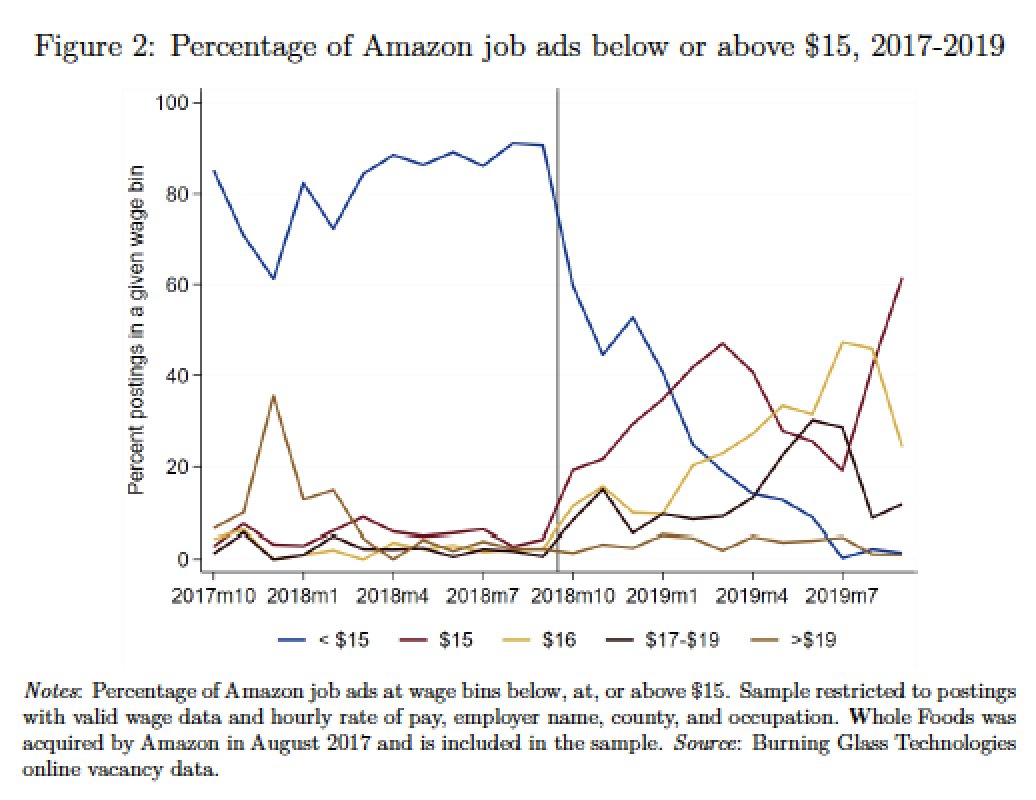
We then examine wages at *other* employers who were more or less exposed to the large retailer's wage policy based on their preexisting wage structure. You can see the variation in "bite" of Amazon's MW across CZs in the continental US here. 3/8 
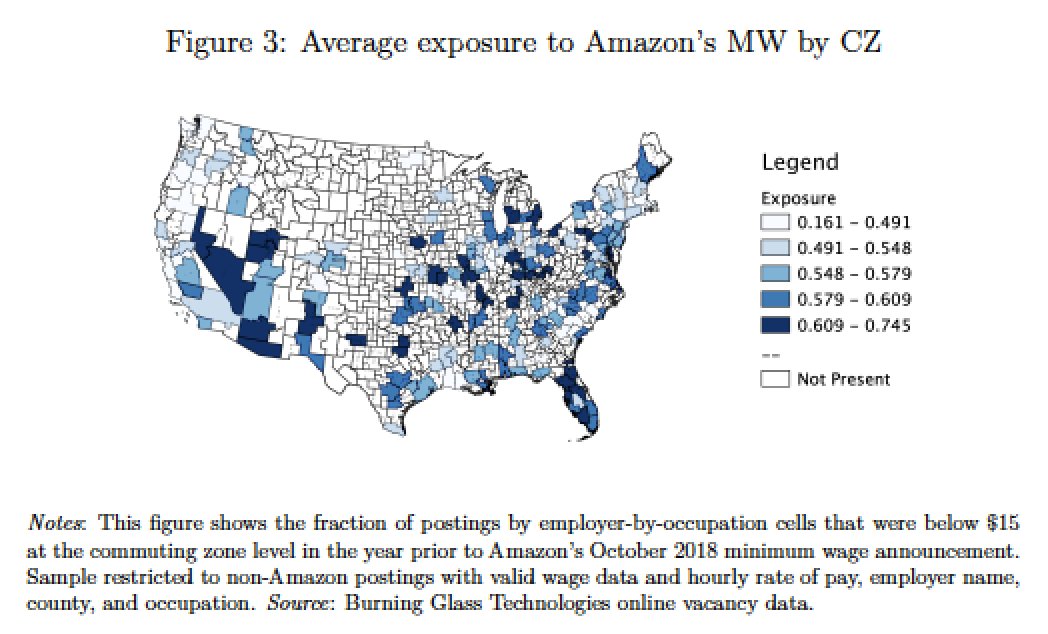
We find significant increases in the wages of other employers in response to large retailer MWs. Our estimates suggest a 10% increase in Amazon's hourly wages led to a 2.6% average increase in hourly wages at non-Amazon employers in the same CZ. 4/8 
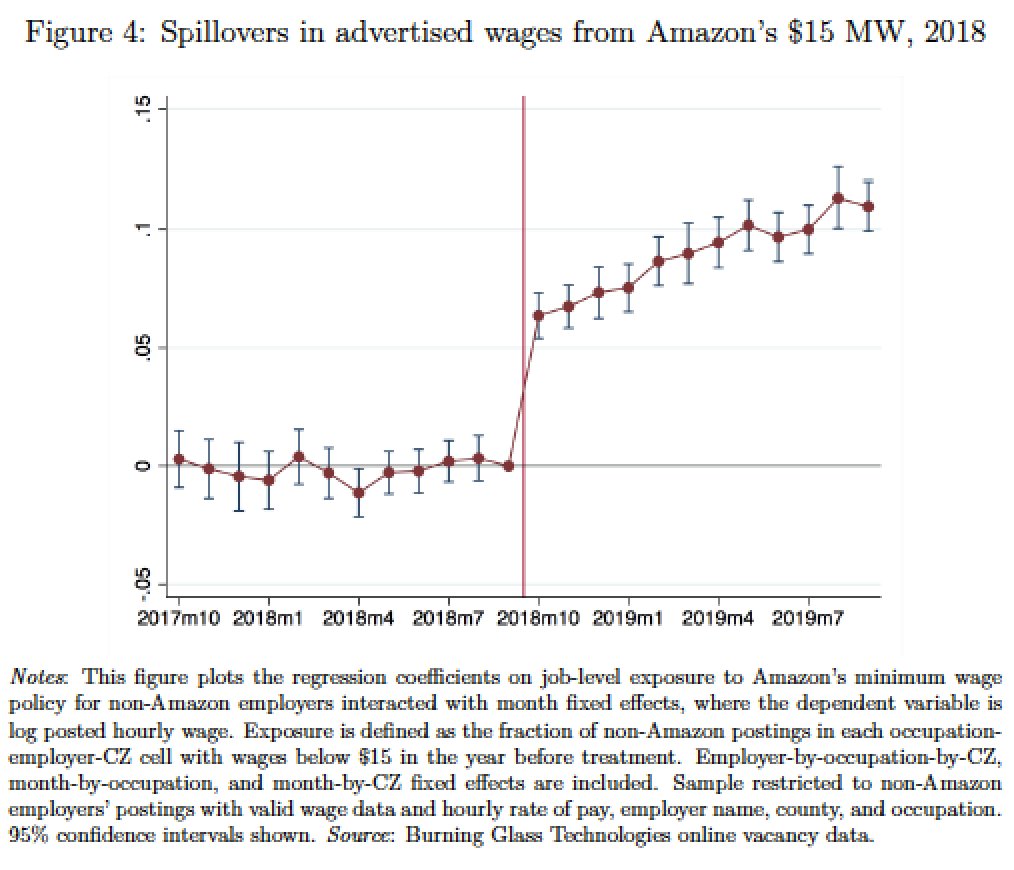
Responding employers seem to be targeting the exact wage announced by the large retailer, resulting, for example, in bunching of non-Amazon wages at $15 right after Amazon's announcement. 5/8 

Using the CPS, we find minimal effects of employer MWs on aggregate employment. Here's the semi-elasticity of employment wrt wages across the natural experiments we study. Our employment elasticities range from -.04 to -.13, strongly consistent with the recent MW literature. 6/8 
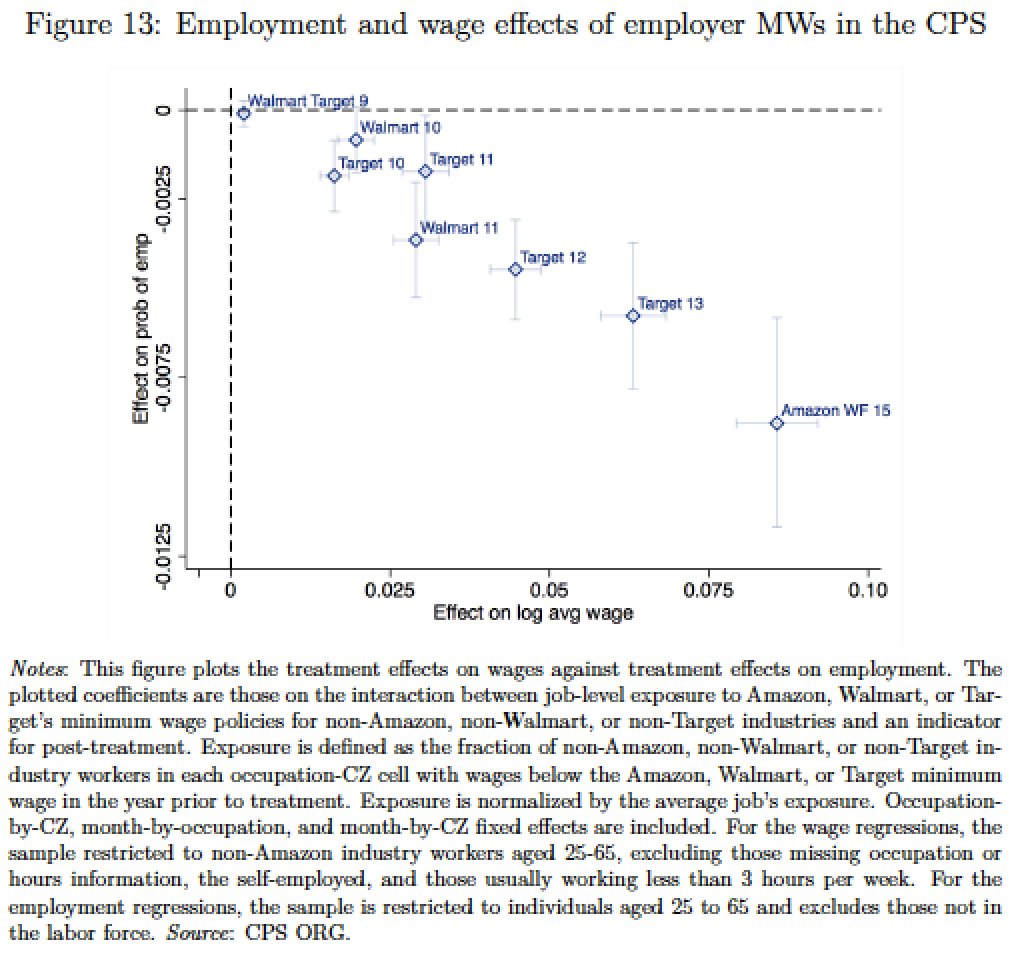
Here are our estimated employment elasticities from large retailer MW shocks compared to recent estimates from the MW (and monopsony) literature. 7/8 
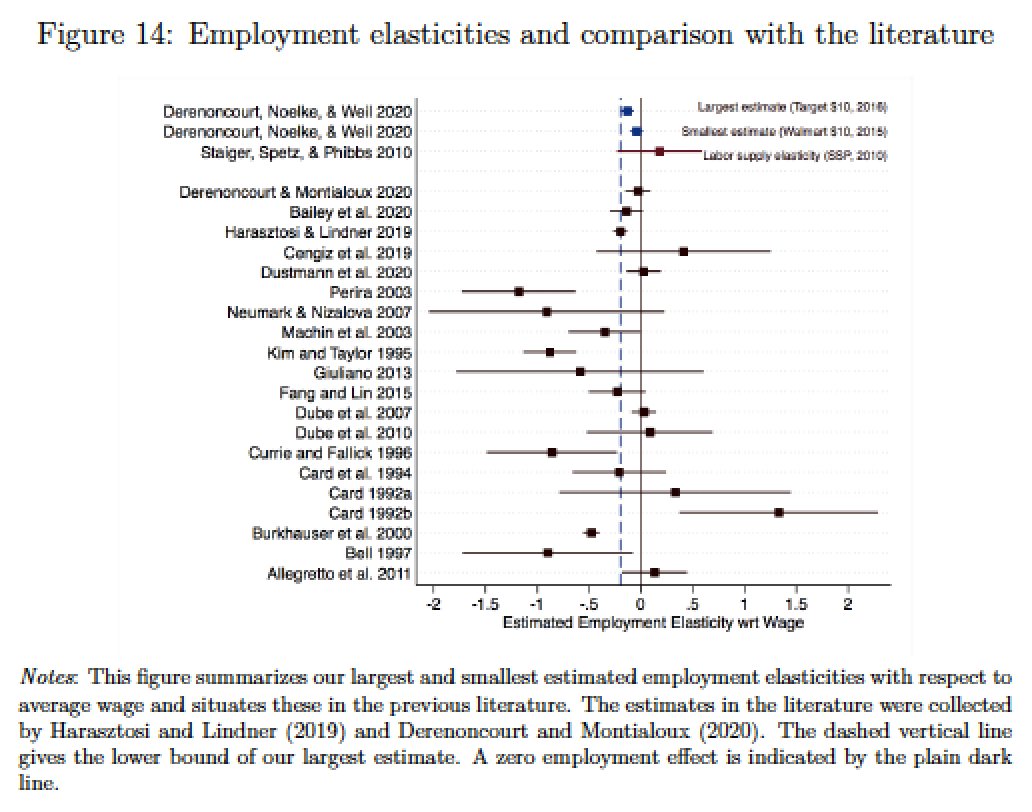
Recent coverage of our work on employer MWs & the broader context in @nytimes by @bencasselman & @jimtankersley here: nytimes.com/2021/03/05/bus…. 8/8
9/8: This work benefited from tremendous research assistance by Alaa Abdelfattah (UC Davis) and Meghna Manohar, @teresakroeger, & @kartiktrivedi at Brandeis!!!
• • •
Missing some Tweet in this thread? You can try to
force a refresh


